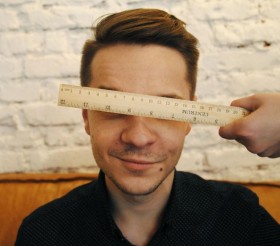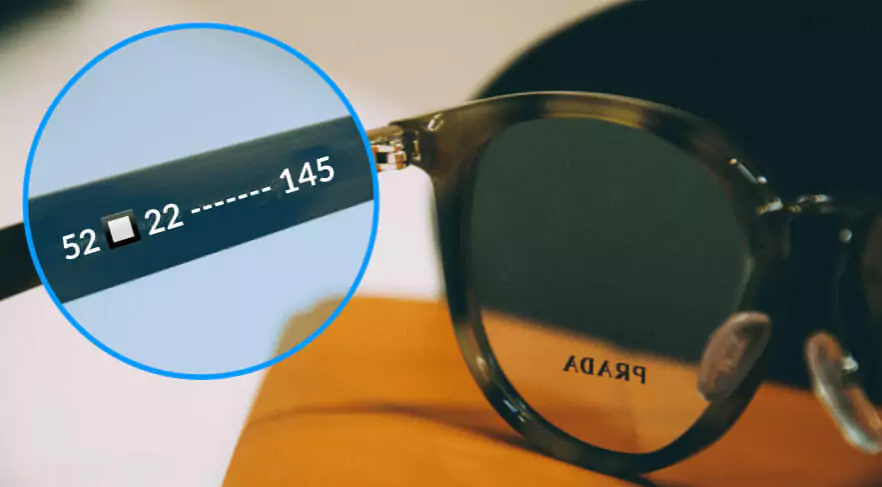When choosing new glasses, it is important to choose the right refractive index of the lens. A higher index means that the lenses are thinner even if you wear diopters thicker than +/- 2. Glasses with a higher index will be lighter and will not press you so much on the nose. Thin lenses are much more elegant and look better.
We will explain this with a simple example:
Andrew is short-sighted and needs diopters with a power of -2. Matthew is also short-sighted, but needs stronger diopters, with a power of -5. If Andrew and Matthew choose lenses with the same index, Matthew’s will be much thicker than Andrew’s. In order to craft a lens, there must be more material used and it must therefore be thicker and heavier overall. However, a higher lens index changes everything!
So that even people with higher diopters can have nice-looking glasses with thin lenses, they can be made with a higher refractive index. Compared to a standard lens, they can be much thinner with the same diopter.
.jpg)
Plus lenses for correcting farsightedness or partially sightedness tend to be thickest in the middle, while minus lenses for correcting myopia are thickest at the edges. By choosing a higher index, we do not completely remove the curvature of the lenses, which gives them their shape, because it is necessary for them to have a dioptric effect. However, we can significantly influence how they protrude from the spectacle frame.
Choose the lens index according to the power of the diopter:
- Index 1.5 - lenses of standard thickness with excellent optical quality, ideal for diopters up to +/- 2.
- Index 1.6 AS - 30% thinner lenses with aspherical design, which reduces distortion in the periphery at higher diopters. They have very good optical quality, the material provides 100% UV protection, they are 7 times more durable than 1.5 lenses. This index is ideal for diopters from +/- 2.25 to +/- 4.
- Index 1.67 AS - 40% thinner lenses with aspherical design. They have good optical quality and the material provides 100% UV protection, they are 6 times more durable than a 1.5 lens. This index is ideal for diopters from +/- 4.25 upwards.
Other materials we can find out there:
1.53 trivex - extremely resistant lenses to breakage, suitable e.g. for sport-lovers.
1.59 polycarbonate - ultralight and durable lenses.
1.74 AS - the thinnest aspherical lenses suitable for diopters over +/- 6.
When you choose glasses on eyerim, you have the opportunity to choose from 3 indexes of lenses in the configurator, which are - from our point of view - the best. They are optically high quality and can cover a wide range of diopters.
.jpg)
The higher index of lenses also has its disadvantages:
A higher refractive index means a lower so-called Abbe number, which determines the overall optical quality of vision and light scattering. In the case of lenses with a high refractive index or in the case of polycarbonate lenses, a number of disturbing reflections are also formed in the material, which can be an obstacle, especially in the case of frameless spectacles. Therefore, we prefer not to offer these lenses.
One of the best trade-offs between lens thickness and vision quality is the 1.6 index lens. It can satisfy most wearers who do not have high diopters. At the same time, it also provides high mechanical resistance, which will be appreciated by the wearers of frameless and semi-framed glasses.
No worries, we will help you choose!
It is good that you are interested in the details of purchasing your new glasses. However, so that you do not have stress when choosing the index, we have decided to choose it for you at least with our glasses from the eyerim collection. We will take into consideration your diopter and frame type. Our partners craft thousands of glasses daily in the optical laboratory.
You can really trust our optometrists. We guarantee you not only thin and aesthetic lenses, but also those that will give you the best possible vision.





















